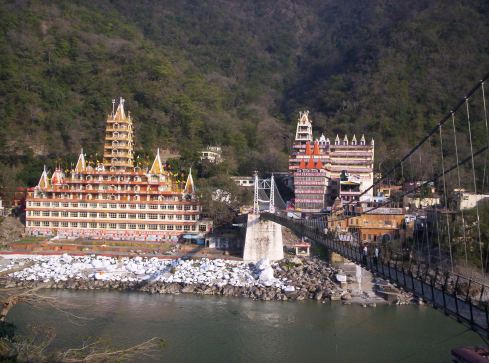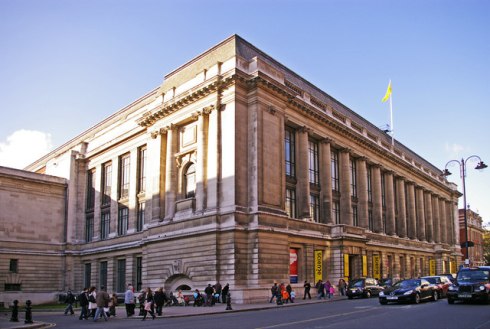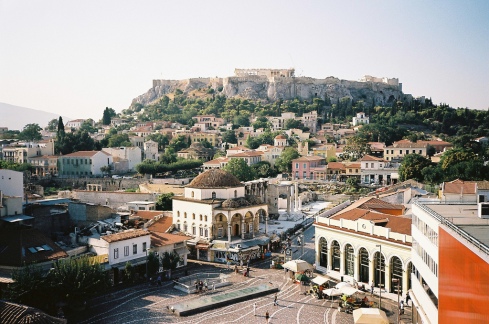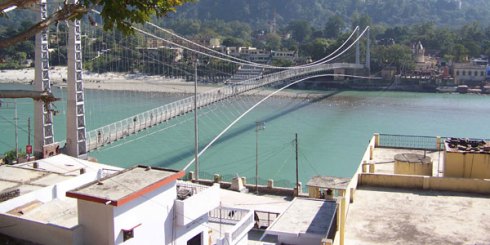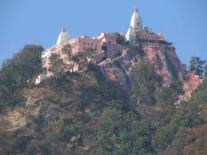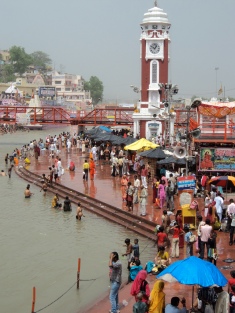by Gabriel Palmer
(This is the last part of the series Wandering Up the Ganges)
Rishikesh is an amazing place. It is one of the rare spots on earth where you can almost feel the spiritual energy vibrating around you. The sounds of chanting echo from the mountainsides, the smell of incense floats through the air, and sight of vibrant saffron robes is everywhere. All of India is filled with spiritual depth and intensity, but in Rishikesh it is so infinitely present that you cannot help but be affected by it. This is all to say that, arriving here, particularly after the journey that proceeded it (possible organ theft and all), was like a breath a fresh spiritual air.
I’m not quite sure what I thought that I would find, but whatever it was I didn’t find it. While the sadhus and holy men seemed to be everywhere, what I discovered in the ashrams themselves was a large number of hippies, girls in flowing yoga pants, guys with dreadlocks, stoners, and an assortment of other westerners who had temporarily (or permanently) checked out of life, or at least western consciousness. This fascinating array of spiritual seekers were certainly friendly, and ready to share their experiences, whether I wanted to hear them or not, but they were not really what I was hoping to find. It was like I had walked into a scene from Eat, Pray, Love, when what I really wanted was more of a Bollywood movie.
Somewhat disconsolate after my long journey to get here, I wandered down to the banks of the Ganges to sit on a rock, stare off into the water, and contemplate what to do next. As so often in life, the answer presented itself in the most unexpected fashion (like the time I got excellent career advice from a mall Santa Claus). While I sat there thinking about all of the great sages who had probably been in this very spot, a man approached me in a rather beat up row boat. What was remarkable about this man was exactly how unremarkable he was. Not a hippy or a swami, he was an average looking American guy who was wearing what appeared to be cargo shorts and a t-shirt from the Gap.
He looked at me for a minute with a curious expression on his face, and then as if struck by a moment of inspiration sat straight up, smiled, and said, with a touch of a southern drawl, “Want a lift?” I’m not really in the habit of taking rides from strange southerners in India piloting unsafe water crafts but I was intrigued enough to make an exception.
“Sure, thanks.”
“Where are you from my troubled friend?”
“How did you know I am troubled?”
“You are, aren’t you?”
“Sure, yeah, I mean I guess we all are no?”
“A philosopher I see.”
“Me? No, just a bit of lost soul.”
For some reason he found this last line particularly amusing and laughed for a good two or three minutes causing the boat to sway violently back and forth. I was at this point beginning to question the wisdom of my decision to get in the boat at all, but we were already in the middle of the river and trying to get out now would mean contracting any number of unidentifiable bacteria and parasites. When he finally calmed himself down he leaned in very close, and examined my face, but it was almost as though he was looking right through me. When he was done he leaned back very thoughtfully and took a deep breath and said. “I know you.”
“You know me?”
“Of course.”
“Have we met before?”
“In a manner of speaking.”
“In what manner would that be?”
“I am you. Or maybe its better to say I was you.”
“Huh, I didn’t realize that I had stopped being me and started being someone else.”
“You didn’t”
He proceeded to sit and stare at me for a solid 5 minutes as I awkwardly sat there and watched the shore line as the boat was rapidly carried down the river. The long (you don’t really know what long is until you have a stranger stare at you without speaking for 5 minutes) silence was finally broken by him saying “You know what, I am going to give you what you need.” Upon saying this he took a small bucket that he had lying at his feet and started filling the boat with the water from the river. As you might imagine I wasn’t amused.
“What are you doing!?”
“Filling the boat with water.”
“Yes, I see that. Why?”
“You seem to think it is a good idea.”
“What are you talking about? I never said that!”
“Said? No. But you have been living that way for too long.”
“Look, I really have no idea what you are talking about.”
Finally he stopped filling up the boat for a minute and took another look at me. Unfortunately, this caused him to return to his previous fits of laughter. After another two minutes he stopped again and this time leaned forward as if to tell me a secret.
“Soon, you will come to realize that you are the boat, and the water is the world. Your place is to be in the water, not to have the water be in you.”
I didn’t really know what to say. I just sat there looking off at the river. Before I knew it we were on the other side. He looked at me with a smile and leaned over one more time.
“Don’t worry you don’t have to say anything.”
“Thanks.”
“Take good care of yourself. You will be seeing yourself here again someday.”
As I stepped out of the boat and back on to land, I felt as though by crossing the river I had crossed a threshold of something profound. Then as I was starring off into the clouds I stepped directly in an enormous pile of cow dung. Deep reflection was going to have to wait till later, and anyway it has already been quite a journey.

